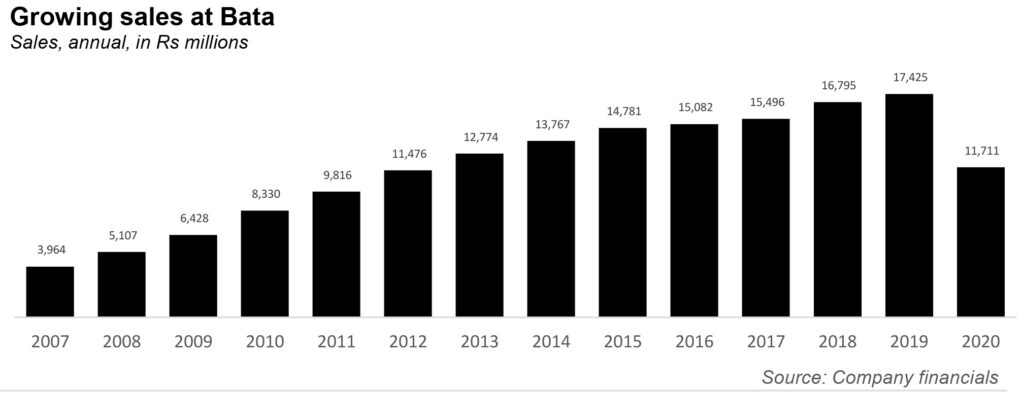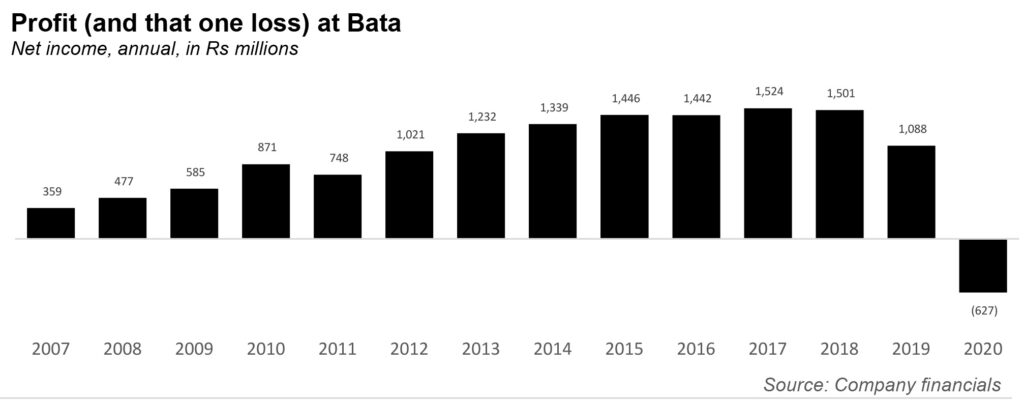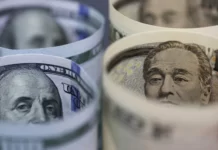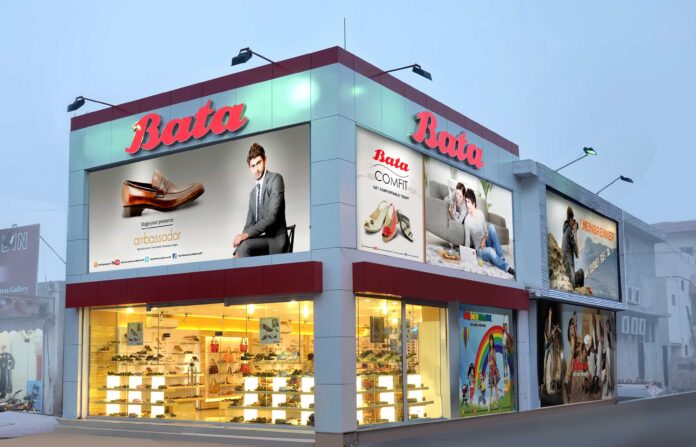For a certain generation of Pakistani children, Bata is the first store they can remember. In fact, this Profit reporter was raised almost exclusively with Bubble Gummer sandals in their wardrobe, and B-first shoes when they started school. It is a testament to Bata’s brand presence in Pakistan, that it comes as a surprise to many that the company is not Pakistani – that it was founded in the Czech Republic, and is currently domiciled in Switzerland.
A large, international, chain operating since before partition, with quality yet affordable footwear, Bata ticks all the right boxes. Today, it is one of the things that defines the middle class, from being the place to go for school shoes and joggers, to the infamous everyday wear such as the Bata ‘chappal’ that is safe in the collective consciousness of generations.
Yet the Bata story is not an overly complicated one, despite its 80 year old history in the Indian subcontinent and its more than century old history internationally. It is a story of consistency, persistence, and innovation at the right time. Particular in Bata’s corporate history has been its success in Pakistan, where it maintains its position as an iconic brand that still produces quality products that sell well.
Its performance in Pakistan has always been exceptional, that is, up until last year. The financial results for the year ending December 31, 2020, were released to the Pakistan Stock Exchange (PSX) on February 26 of this year – and to many they may have come as a shock. The company reported a loss of Rs627 million, which is the first and only loss recorded since 2007, which is the last year for which there is publicly available financial information.
What happened? Well, Covid-19 happened. To understand how big the shock was, let us take a historical look at the company.
 First, some context: In 1894, eighth generation shoemakers, Tomáš, Anna and Antonín Baťa, established the Bata Shoe Company in then Czechoslovakia. Their first product, called the Batovka, was a shoe made of leather and canvas at a time when shoes were made of only leather. The product was wildly successful, setting up the company for success. By the 1930s, the company had factories and stores across Europe; in 1931, the company entered India, and set up ‘Batanagar’, a specially built industrial town in West Bengal for Bata shoes. Today, the company is the largest shoemaker by volume, and serves around a million customers a day in nearly 5300 retail stores around the world.
First, some context: In 1894, eighth generation shoemakers, Tomáš, Anna and Antonín Baťa, established the Bata Shoe Company in then Czechoslovakia. Their first product, called the Batovka, was a shoe made of leather and canvas at a time when shoes were made of only leather. The product was wildly successful, setting up the company for success. By the 1930s, the company had factories and stores across Europe; in 1931, the company entered India, and set up ‘Batanagar’, a specially built industrial town in West Bengal for Bata shoes. Today, the company is the largest shoemaker by volume, and serves around a million customers a day in nearly 5300 retail stores around the world.
In what is now Pakistan, the first Bata outlet was established in Lahore in 1942. That was just a single store, then after independence, was formally incorporated as the Bata Shoes Company (Pakistan) Limited in 1951. It would eventually go public in 1979 as Bata Pakistan Limited. Today, the company has a retail network comprising more than 467 retail outlets and 331 registered wholesale dealers.
In Pakistan, the company was able to create the specific Bata ‘chappal’ – a classic, go-to and cheap version of regular sandals available in markets. The formula of everyday shoes, and specialized school and children’s shoes has been key to the brand’s success. Every August, schoolchildren must buy plain black shoes and white ‘PT’ canvas shoes, and the options are either Bata, or Servis. There are also surprisingly limited options for affordable and high quality shoes for children – and Bata has an enviable position as a store that can produce shoes for children that will not be uncomfortable. Traditional and affordable Bata school shoes and slippers aside, Bata sells Marie Claire, their brand for women’s shoes, Power for sports, Bubblegummers for childrens’ shoes, and Bata comfort for special medicated footwear. In addition, the company sells Weinbrenner and North Star sneakers.
The formula has served them well: between 2007 and 2012, sales increased from Rs3.9 billion, to Rs11.5 billion, becoming one of the few retail companies where revenue exceeds Rs10 billion mark. Sales then reached their highest mark in 2019, at Rs17.4 billion. Similarly, the company’s net income rose form Rs359 million in 2007, to Rs1 billion in 2012, to Rs1.5 billion in 2018. The company’s net income fell in 2019 to Rs1.09 billion, but this was primarily due to a change in adopting IFRS standards that year.
One could say Bata Pakistan was feeling optimistic. The brand was trying to shift away from its usual core products, to a more upbeat, ‘modern’ aesthetic. The company had started a ‘Surprisingly Bata’ campaign, (a play on expectations of the company), and hired popular actors Sheheryar Munwar and Maya Ali as brand ambassadors.
And then, the pandemic hit. The real surprise for Bata.
As Bata CEO Imran Malik told Profit earlier in an interview last year, the company’s plans for an evolution and a change in branding all came grinding to a halt because of Covid-19. “Covid-19 has severely affected the retail businesses which has resulted in the negative sales volume and overall operational profitability of the retail businesses across the globe. This new normal may totally change people’s lifestyle, their shopping behavior and their outdoor preferences,” Malik had said.

And it shows. In 2020, the company’s sales drastically fell to 2012 era sales, erasing gains made since then. Meanwhile, the company made a loss of Rs627 million – the first loss recorded in the period between 2007 and 2020.
The culprit is obvious – in a time of heightened lockdown, panic, and economic stress, the last items people had in mind was new shoes. This coupled with the massive shutdown of schools for most of the year meant that Bata was not selling as many shoes as it usually did.
Typically, brands also pivoted during the pandemic to sell online, and to focus on e-commerce, something that Malik had previously alluded to. But Bata is not typically what one searches for in a browser – it is still very much a brick-and-mortar retail experience.
With the opening of schools this year, the advent of the vaccine, and the general desire for people to leave their homes and life to return to normal, perhaps Bata Pakistan, too, will see a return to normal.

























false work
slurry wall construction